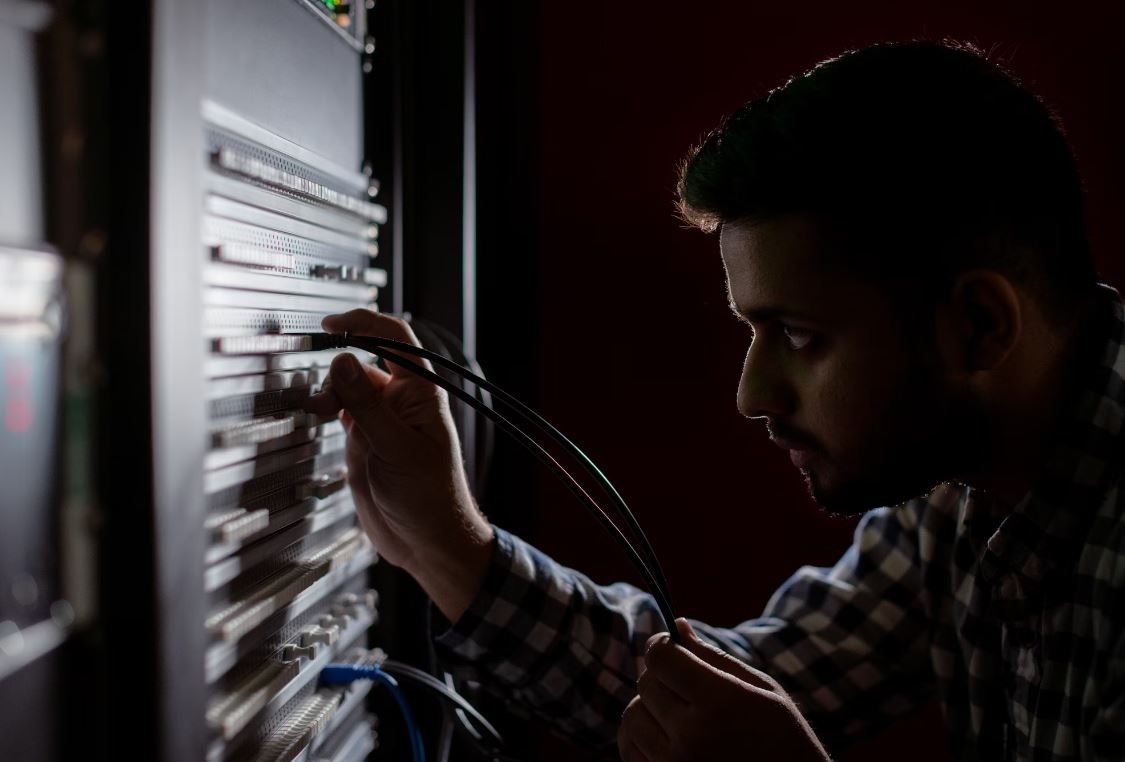Solar City Vikas Karyakram
The Solar City Vikas Karyakram is an initiative by the government aimed at promoting solar energy adoption in cities and urban areas. It was launched as part of the National Solar Mission to achieve the goal of generating 40% of our energy from renewable sources by 2030.
Key Takeaways
- Solar City Vikas Karyakram aims to promote solar energy adoption in cities.
- Part of the National Solar Mission to generate 40% of energy from renewable sources by 2030.
- Focuses on solar rooftop installations, solar water heating systems, and solar street lighting.
- Offers financial incentives and subsidies to encourage solar energy implementation.
- Promotes awareness and capacity building programs for citizens and municipal officials.
The program primarily focuses on promoting solar rooftop installations, solar water heating systems, and solar street lighting. These initiatives are crucial for achieving sustainable development and reducing dependency on fossil fuels. Solar rooftop installations not only provide clean energy but also help households and commercial buildings save on electricity bills. Solar water heating systems and solar street lighting contribute to reducing the reliance on conventional energy sources.
*Did you know that India receives an average solar radiation of 5,000 trillion kWh per year, making it one of the world’s leading solar energy resources?*
Financial Incentives and Subsidies
To encourage the adoption of solar energy, the Solar City Vikas Karyakram offers financial incentives and subsidies to citizens and businesses. These incentives aim to make solar energy installations more affordable and accessible for everyone. Some of the financial benefits include:
- Capital subsidies for installation of solar systems
- Soft loans with low-interest rates
- Tax benefits and exemptions
- Net metering policies to feed excess energy back into the grid
*Did you know that the government provides capital subsidies of up to 30% for rooftop solar installations in residential and commercial buildings?*
Awareness and Capacity Building
The program not only focuses on infrastructure development but also emphasizes awareness and capacity building. It conducts various awareness campaigns, workshops, and training programs to educate people about the benefits of solar energy. These initiatives target both citizens and municipal officials to ensure widespread adoption and implementation of solar energy measures. By promoting awareness and capacity building, the program aims to create a sustainable ecosystem for solar energy in cities and urban areas.
*Did you know that the program has trained over 5,000 municipal officials on solar energy policies and implementation strategies?*
Solar City Vikas Karyakram in Action
Let’s take a closer look at some key initiatives under the Solar City Vikas Karyakram in the table below:
| Initiative | Description |
|---|---|
| Solar Rooftop Installations | Encouraging the installation of solar panels on rooftops of residential and commercial buildings to generate clean electricity. |
| Solar Water Heating Systems | Promoting the use of solar energy for heating water in residential and commercial establishments, reducing the consumption of conventional energy sources. |
| Solar Street Lighting | Replacing traditional street lights with solar-powered LED lights, reducing electricity consumption and carbon emissions. |
Conclusion
The Solar City Vikas Karyakram is an important initiative that aims to promote the adoption of solar energy in cities and urban areas of India. By focusing on solar rooftop installations, solar water heating systems, and solar street lighting, the program aims to achieve the goal of generating 40% of our energy from renewable sources by 2030. Through financial incentives, awareness campaigns, and capacity building programs, the program strives to create a sustainable ecosystem for solar energy in India. It is a significant step towards addressing climate change, reducing air pollution, and achieving energy security.

Common Misconceptions
1. Solar City Vikas Karyakram is expensive
One common misconception that people have about the Solar City Vikas Karyakram is that it is expensive to implement. However, this is not always the case. While there may be initial investment costs, such as purchasing solar panels, in the long run, the program can actually help save money on electricity bills. Additionally, there are often government incentives and subsidies available that can significantly reduce the cost of installing solar panels.
– The program can actually help save money on electricity bills in the long run.
– There are often government incentives and subsidies available to reduce the cost.
– Initial investment costs, such as purchasing solar panels, may be required.
2. Solar City Vikas Karyakram is only beneficial for sunny regions
Another common misconception is that the Solar City Vikas Karyakram is only beneficial for regions with abundant sunshine. While it is true that solar panels generate more electricity in sunny areas, they can still be effective in regions with less sunlight. In fact, even on cloudy days, solar panels can generate electricity. Additionally, advancements in solar technology have made panels more efficient at capturing and converting sunlight, allowing them to work effectively in a wider range of conditions.
– Solar panels can still be effective in regions with less sunlight.
– Solar panels can generate electricity even on cloudy days.
– Advancements in solar technology have made panels more efficient in capturing and converting sunlight.
3. Solar City Vikas Karyakram is not suitable for residential use
Some people mistakenly believe that the Solar City Vikas Karyakram is only suitable for commercial or industrial use, and that it is not practical for residential buildings. However, this is not the case. Solar panels can be installed on rooftops of residential buildings, allowing homeowners to generate their own electricity and reduce their reliance on the grid. Additionally, excess electricity generated by residential solar panels can be sold back to the utility company, providing a source of income for homeowners.
– Solar panels can be installed on residential rooftops.
– Homeowners can generate their own electricity and reduce reliance on the grid.
– Excess electricity generated by residential solar panels can be sold back to the utility company.
4. Solar City Vikas Karyakram is unreliable and inconsistent
One misconception about the Solar City Vikas Karyakram is that it is unreliable and inconsistent. Some people believe that solar energy is too dependent on weather conditions and can be unpredictable. While it is true that solar energy production can vary based on weather patterns, there are technologies and systems in place to ensure a consistent supply of electricity. This includes energy storage solutions, such as batteries, which can store excess energy generated during sunny periods for later use.
– Technologies and systems, such as energy storage solutions, ensure a consistent supply of electricity.
– Energy storage solutions can store excess energy for later use.
– Solar energy production can vary based on weather patterns.
5. Solar City Vikas Karyakram requires a lot of maintenance
Finally, some people believe that the Solar City Vikas Karyakram requires a significant amount of maintenance, making it burdensome and impractical. However, solar panels are designed to be low maintenance and require minimal upkeep. Regular cleaning of the panels to remove dirt and debris is usually sufficient to keep them operating efficiently. Additionally, solar panel manufacturers often provide warranties and support to ensure that any maintenance needs are taken care of.
– Solar panels are designed to be low maintenance.
– Regular cleaning is usually sufficient to keep panels operating efficiently.
– Solar panel manufacturers often provide warranties and support for maintenance needs.

Solar City Vikas Karyakram
The Solar City Vikas Karyakram is an initiative implemented by the Government of India to promote the use of solar energy in cities across the country. This program aims to reduce the consumption of fossil fuels and greenhouse gas emissions, while also providing sustainable and affordable energy solutions to urban areas. The tables below present various aspects and success stories of the Solar City Vikas Karyakram.
Solar Energy Generation in Select Cities
The table below showcases the solar energy generation capacity in select cities participating in the Solar City Vikas Karyakram. It demonstrates the significant progress made in harnessing solar power in these urban areas.
| City | Solar Energy Generation Capacity (MW) |
|---|---|
| Mumbai | 52 |
| Delhi | 43 |
| Bengaluru | 37 |
| Chennai | 29 |
| Kolkata | 24 |
Carbon Emissions Reduction
This table highlights the positive impact of the Solar City Vikas Karyakram on carbon emissions reduction in participating cities. Through the adoption of solar energy, a significant amount of CO2 emissions have been avoided.
| City | CO2 Emissions Reduction (tons per year) |
|---|---|
| Pune | 13,000 |
| Hyderabad | 10,750 |
| Ahmedabad | 8,600 |
| Jaipur | 6,900 |
| Lucknow | 5,250 |
Solar Panels Installed on Public Buildings
Public buildings play a crucial role in setting an example for renewable energy adoption. The following table highlights the number of solar panels installed on public buildings in selected cities participating in the Solar City Vikas Karyakram.
| City | Number of Public Buildings with Solar Panels |
|---|---|
| Chandigarh | 150 |
| Mysuru | 120 |
| Bhubaneswar | 101 |
| Indore | 87 |
| Kochi | 75 |
Investment in Solar Power Projects
Investment in solar power projects is instrumental in driving the growth of solar energy adoption. This table presents the total investment in solar power projects in cities participating in the Solar City Vikas Karyakram.
| City | Total Investment (in million USD) |
|---|---|
| Jodhpur | 230 |
| Vadodara | 185 |
| Varanasi | 150 |
| Gurugram | 120 |
| Ranchi | 95 |
Solar Energy Employment
The growth of the solar energy industry has led to job creation in various sectors. The following table depicts the number of direct and indirect employment opportunities generated through the Solar City Vikas Karyakram.
| City | Direct Employment | Indirect Employment |
|---|---|---|
| Bhopal | 1,200 | 3,500 |
| Vijayawada | 900 | 2,800 |
| Patna | 800 | 2,500 |
| Surat | 650 | 2,100 |
| Jabalpur | 500 | 1,700 |
Solar Water Heating Systems Installed
Implementing solar water heating systems offers households a sustainable and cost-effective solution. The next table illustrates the number of solar water heating systems installed in select cities participating in the Solar City Vikas Karyakram.
| City | Number of Solar Water Heating Systems Installed |
|---|---|
| Agra | 5,400 |
| Guwahati | 4,800 |
| Nagpur | 4,200 |
| Coimbatore | 3,600 |
| Amritsar | 3,000 |
Solar Street Lighting Installations
Replacing conventional street lights with solar-powered lighting systems enhances energy efficiency and reduces electricity costs. The following table showcases the number of solar street lighting installations in selected cities participating in the Solar City Vikas Karyakram.
| City | Number of Solar Street Lighting Installations |
|---|---|
| Rajkot | 9,500 |
| Gwalior | 8,700 |
| Ludhiana | 7,900 |
| Varanasi | 7,200 |
| Visakhapatnam | 6,500 |
Solar Rooftop Systems Installed
Solar rooftop systems on residential and commercial buildings play a crucial role in decentralized energy generation. This table displays the number of solar rooftop systems installed in selected cities participating in the Solar City Vikas Karyakram.
| City | Number of Solar Rooftop Systems Installed |
|---|---|
| Jaipur | 11,500 |
| Kanpur | 10,200 |
| Nashik | 9,600 |
| Cuttack | 8,900 |
| Thiruvananthapuram | 8,300 |
Solar Power Capacity in Industrial Zones
Industrial zones, being heavy energy consumers, can greatly benefit from solar power integration. The next table presents the solar power capacity in industrial zones of select cities participating in the Solar City Vikas Karyakram.
| City | Solar Power Capacity in Industrial Zones (MW) |
|---|---|
| Ahmedabad | 30 |
| Ludhiana | 25 |
| Indore | 20 |
| Coimbatore | 17 |
| Bhopal | 15 |
In conclusion, the Solar City Vikas Karyakram has emerged as a successful initiative in promoting the adoption of solar energy in urban areas. The tables presented above demonstrate the progress made in solar energy generation, carbon emissions reduction, employment opportunities, and the installation of solar-powered systems in various cities across India. With continued investments and expansion, the program will contribute significantly to mitigating climate change, driving sustainable development, and ensuring a cleaner and greener future for Indian cities.
Frequently Asked Questions
Questions about Solar City Vikas Karyakram
Question:
What is the Solar City Vikas Karyakram?
Answer:
The Solar City Vikas Karyakram is a government initiative aimed at promoting the use of renewable energy sources, particularly solar energy, in cities. It focuses on the development of solar power projects, energy-efficient buildings, and the use of solar-powered equipment and appliances.
Question:
How does the Solar City Vikas Karyakram work?
Answer:
The Solar City Vikas Karyakram works by providing financial incentives, subsidies, and technical support to individuals, businesses, and local governments for implementing solar energy projects. It also promotes awareness about the benefits of solar energy and facilitates the adoption of solar technology in various sectors.
Question:
Who can participate in the Solar City Vikas Karyakram?
Answer:
Any individual, business, or local government in a city can participate in the Solar City Vikas Karyakram. The program is open to both residential and commercial sectors.
Question:
What are the benefits of participating in the Solar City Vikas Karyakram?
Answer:
Participating in the Solar City Vikas Karyakram can lead to various benefits. These include reduced electricity bills, increased use of clean and renewable energy, reduced carbon footprint, improved energy efficiency, and a positive contribution towards sustainable development.
Question:
How can I apply for the Solar City Vikas Karyakram?
Answer:
To apply for the Solar City Vikas Karyakram, you should contact the designated government authority responsible for the program in your city. They will guide you through the application process and provide you with the necessary forms and information.
Question:
What types of solar energy projects are eligible for support under the Solar City Vikas Karyakram?
Answer:
Various types of solar energy projects are eligible for support under the Solar City Vikas Karyakram. These include rooftop solar installations, solar water heating systems, solar street lights, solar-powered pumps, and solar energy-based cooking systems.
Question:
Does the Solar City Vikas Karyakram provide financial assistance for solar projects?
Answer:
Yes, the Solar City Vikas Karyakram provides financial assistance in the form of subsidies, grants, and low-interest loans for solar energy projects. The exact financial support and eligibility criteria may vary depending on the region and project type.
Question:
Is there a deadline for applying to the Solar City Vikas Karyakram?
Answer:
The deadline for applying to the Solar City Vikas Karyakram may vary depending on the city and the specific program cycle. It is advisable to contact the program authorities or visit the official website for updated information regarding application deadlines.
Question:
How can I learn more about the Solar City Vikas Karyakram?
Answer:
To learn more about the Solar City Vikas Karyakram, you can visit the official website of the program or contact the designated government authority responsible for the implementation in your city. They can provide you with detailed information, program guidelines, and answer any specific queries you may have.
Question:
How can I contribute to the Solar City Vikas Karyakram if I am not eligible for financial support or unable to install solar panels?
Answer:
Even if you are not eligible for financial support or unable to install solar panels, you can still contribute to the Solar City Vikas Karyakram by promoting awareness about solar energy, practicing energy conservation, and encouraging others to adopt solar technology. Small steps like unplugging unused appliances, using energy-efficient lighting, and supporting policies that promote renewable energy can make a difference.




